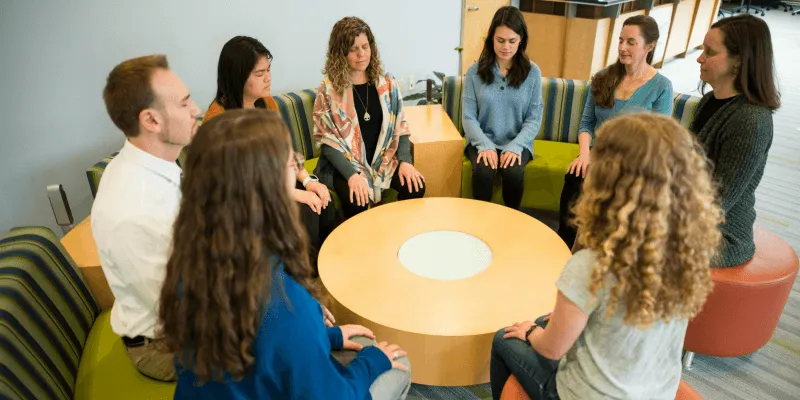Mindfulness — a mental state achieved by focusing awareness on one’s breath, bodily sensations, mood and surroundings in the present moment — can help decrease stress, increase mental focus and creativity and improve overall wellbeing. Research shows that mindfulness practices including sitting and walking meditation, body scan, and yoga can help treat health concerns including chronic pain, substance abuse disorder, trauma, anxiety and depression.
This fall, students in all majors can take a new, three-credit course on mindfulness-based health and wellness. The course complements careers in health science, psychology, social work, nursing, education and business and is an approved elective for UVM’s Integrative Health Care Certificate.
HLTH 095: Mindfulness-Based Health and Wellbeing introduces mindful practices and their benefits in society at-large and within specific populations, such as in prisons, schools, workplaces or health care settings. Students will explore common barriers to practice and develop skills to recognize and modify reflexive behavior patterns that lead to suffering. The course also incorporates the internationally-known Mindfulness Based Stress Reduction program (MBSR), the benefits of which are supported by research and include reduced anxiety, depression and pain.
“Mindfulness practice is not therapy, it’s an educational program that helps cultivate self-efficacy, self-compassion and wellness. The goal of mindfulness is not relaxation, but with sustained practice that is frequently the outcome,” said physical therapy professor Donna Smith, course instructor and qualified MBSR teacher.
The Mindfulness-Based Health and Wellness course meets Thursday afternoons and on one Saturday for a full-day retreat in personal mindfulness practice.
“To really understand the benefits of mindfulness you can’t just read about it, you have to practice it,” Smith said. “Learning comes from awareness and self-inquiry.”
Students can register for the course through the UVM online registration system.
